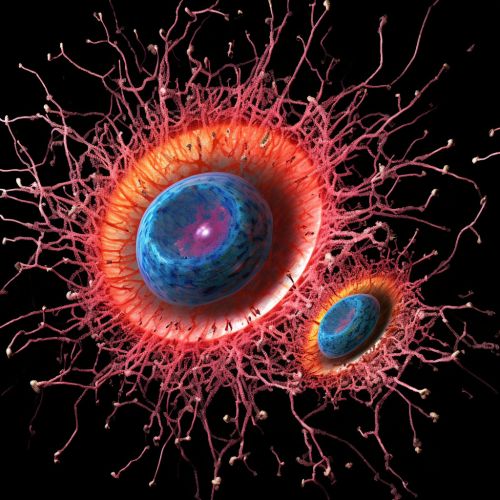Nucleus (cell)
Introduction
The cell nucleus is a membrane-bound structure that contains the cell's genetic material in the form of DNA. The nucleus is the largest organelle in the cell and is considered the control center of the cell because it holds the instructions for cell growth, metabolism, and reproduction.
Structure
The nucleus is enclosed by a double membrane known as the nuclear envelope. The nuclear envelope separates the contents of the nucleus from the cytoplasm, the rest of the cell. The nuclear envelope is perforated with small holes, known as nuclear pores, which allow for the transport of molecules in and out of the nucleus.


Inside the nucleus, the DNA is organized into structures called chromosomes. Each chromosome is a single, long, continuous thread of DNA that is coiled and supercoiled to form a compact structure. The DNA in the chromosomes carries the genetic information of the cell.
In addition to the chromosomes, the nucleus also contains a structure called the nucleolus. The nucleolus is the site of ribosome synthesis. Ribosomes are the cell's protein factories, and they are assembled in the nucleolus before being exported to the cytoplasm where they carry out protein synthesis.
Function
The primary function of the nucleus is to maintain the integrity of the DNA and to control the activities of the cell by regulating gene expression. The nucleus is responsible for controlling the cell's metabolism, growth, and reproduction by controlling the synthesis of proteins.
The nucleus also plays a crucial role in the cell cycle, the process by which cells grow and divide. During the cell cycle, the DNA in the nucleus is replicated, and the chromosomes are divided equally between the two daughter cells.
Role in Disease
Changes or mutations in the DNA within the nucleus can lead to a variety of diseases, including cancer. In cancer, mutations in the DNA can lead to uncontrolled cell growth and division, resulting in a tumor. The study of the cell nucleus and its role in disease is a major focus of research in cell biology and medicine.
